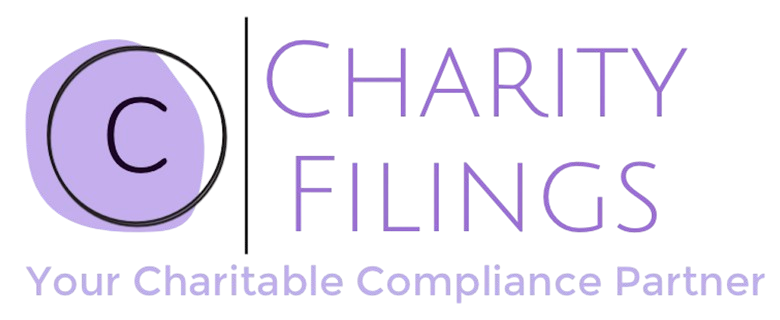Rhode Island nonprofits just got major relief from expensive audit requirements. Senate Bill 783, effective July 1, 2025, doubles the audit threshold from $500,000 to $1,000,000, potentially saving organizations thousands annually in audit costs.
Rhode Island’s SB 783 Raises Threshold for Audited Financial Statements
Rhode Island Senate Bill 783 introduces a key update to the state’s regulations on charitable organizations under the Rhode Island Department of Business Regulation (DBR). The law amends the Solicitation by Charitable Organizations Act to increase the annual gross income threshold for requiring audited financial statements, aiming to reduce compliance costs and administrative burdens for mid-sized nonprofits. This change allows more charities to submit simpler compiled financial statements instead of full audits, while maintaining oversight for larger organizations.
Signed into law on July 1, 2025, as an act relating to businesses and professions, Senate Bill 783 was introduced on March 14, 2025, and sponsored by Senators Vargas, DiPalma, Britto, LaMountain, and Murray. Charities operating in Rhode Island should review their financial reporting obligations to ensure compliance with the new threshold.
[Read the details of Senate Bill 783 →]
Key Highlights Of SB 783
Amendment to Reporting Requirements:
Definition: The bill amends Section 5-53.1-4 of the General Laws in Chapter 5-53.1, entitled “Solicitation by Charitable Organizations,” which governs the reports and records of registered charitable organizations.
Threshold Increase:
Raises the annual gross income threshold from $500,000 to $1,000,000 for charitable organizations required to file audited financial statements prepared by an independent certified public accountant.
For organizations with annual gross income of $1,000,000 or less, compiled financial statements prepared by an independent certified public accountant are sufficient, including:
- Statement of activities; and
- Statement of financial position
Audit Requirements for Larger Organizations:
Charities with annual gross income exceeding $1,000,000 must submit a copy of their annual financial statement audited by an independent certified public accountant, or a consolidated report covering the preceding year’s fundraising activities.
Director’s Authority:
The DBR director may still require audited annual financial statements from organizations with budgets of $1,000,000 or less if there is reasonable cause to believe a violation of the chapter has occurred.
Combined Reports for Affiliates:
Parent organizations with affiliates (chapters, branches, or subordinated units) in Rhode Island may file a combined report, including schedules for each affiliate certified under penalty of perjury.
- Filing fees: $75 for the combined report plus $75 per organization included.
- Failure to file a combined report does not excuse individual compliance.
Acceptance of Other Reports:
The director may accept substantially similar annual reports filed with other governmental agencies.
Extensions:
Due dates for financial information (e.g., IRS Form 990 or audited statements) align with IRS deadlines, with extensions available upon request. For compiled statements, extensions up to six months may be granted.
Prohibited Acts and Compliance:
Charitable organizations must register with the DBR and comply with all reporting to maintain good standing. Misleading representations or failure to comply may result in enforcement actions, including fines or suspension.
Impact On Nonprofits Operating in Rhode Island
SB 783 primarily benefits mid-sized nonprofits by easing financial reporting requirements, potentially saving thousands in audit costs annually for organizations with gross incomes between $500,000 and $1,000,000. Here’s how:
Good Standing Requirement:
Definition: Nonprofits must remain in good standing with the Rhode Island Department of Business Regulation (DBR), Secretary of State (SOS), and other relevant agencies to solicit funds legally. This includes timely registration, annual renewals, and financial filings.
Impact: Previously, charities exceeding $500,000 in annual gross income faced mandatory audits, which could cost $5,000–$15,000 or more depending on complexity. Now, those up to $1,000,000 can opt for compiled statements, which are less expensive and time-consuming, streamlining operations for growing organizations.
Compliance Burden for Nonprofits:
Registration and Reporting: All charitable organizations soliciting in Rhode Island must register initially and renew annually with the DBR, submitting IRS Form 990 (or equivalents) and financial statements. The new threshold applies to these filings.
Fees: No changes to fees were introduced in SB 783.
Exemptions: Limited exemptions may apply for very small organizations or certain types, but most nonprofits will benefit from the raised threshold if their income falls in the affected range.
Verification Process: When registering or renewing, nonprofits must provide accurate financial data. Platforms or fundraisers working with charities should note the update, though SB 783 does not directly regulate platforms like in other states.
Consequence of Non-Compliance: Failure to meet reporting requirements (e.g., late filings or incomplete statements) can lead to delinquency, suspension, or revocation, prohibiting solicitation and potentially disrupting operations.
Practical Implications for Nonprofits:
Cost Savings: Organizations in the $500,000–$1,000,000 range can redirect audit savings toward mission-driven activities, such as programs or staffing.
Maintaining Compliance: Nonprofits must ensure timely filings with:
- DBR: Submit annual registration, financial statements, and reports via the online portal.
- SOS: File periodic statements to maintain corporate status.
- IRS: Align state filings with federal Form 990 deadlines.
Broader Effects: This update may encourage more nonprofits to operate in Rhode Island by reducing barriers, particularly for those experiencing growth due to inflation or expanded fundraising.
Retroactive and Ongoing Impact:
Effective Date: The act took effect upon passage on July 1, 2025, applying to fiscal years ending after that date. Nonprofits should consult the DBR for guidance on transitioning filings.
Ongoing Compliance: Monitor income levels annually; if exceeding $1,000,000, prepare for audited statements. The Alliance for Nonprofit Impact supported the bill, highlighting its role in streamlining reporting for smaller charities.
Additional Context
Legislative Intent:
SB 783 aims to modernize charitable oversight by adjusting thresholds for inflation and growth in the nonprofit sector, reducing unnecessary burdens on organizations while ensuring transparency for larger ones. It addresses feedback from nonprofits about rising audit costs without compromising accountability.
Other Requirements:
Nonprofits must still comply with Rhode Island’s solicitation laws, including providing donor disclosures, listing professional fundraisers, and notifying the DBR of material changes within 20 days.
Organizations affected by this change should also review their complete financial statement requirements across all states to ensure optimal compliance planning.
Questions about Rhode Island’s new requirements or facing compliance issues in other states? Contact our team for expert guidance.


